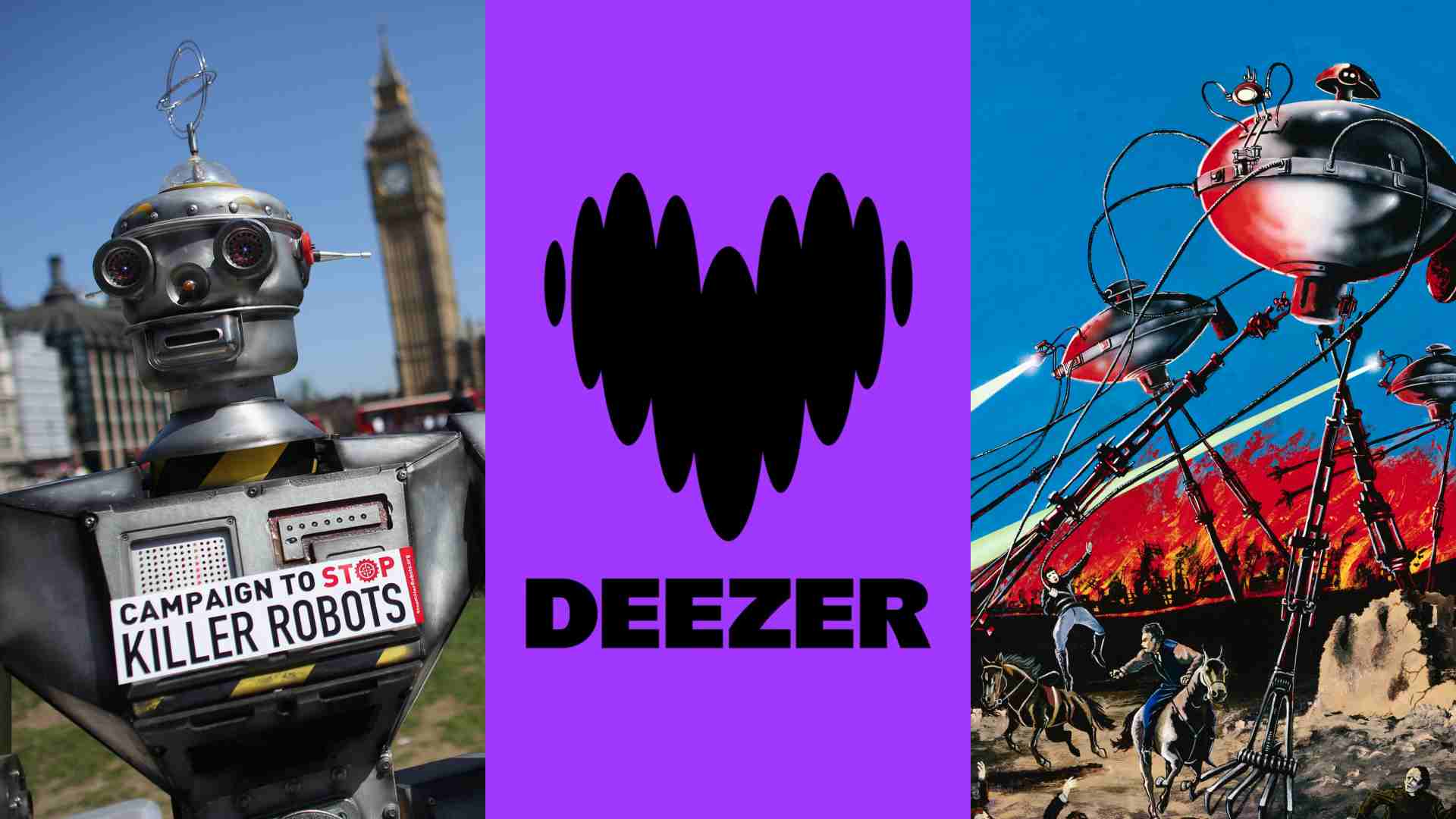10,000 AI-generated tracks are being uploaded to Deezer every day and it's fighting back
Reckon that music’s AI apocalypse is ‘coming soon’? It’s already here and Deezer isn't happy

An incredible 10,000 AI-generated tracks are being uploaded to Deezer and, in attempts to stop the deluge, Deezer is fighting its own private tech war to keep the fakes at bay.
That’s according to the company’s latest blog which reveals the surprising level of the problem and – with close to 10% of tracks submitted now being AI- generated – the platform’s acknowledgement that something needs to be done to stem the flow.
After the reveal of the sheer scale of the problem, what’s most interesting about Deezer's announcement is that they have created a tool that can spot AI-generated tracks, of the type produced by Suno and Udio.
Suno’s CEO recently went on the record as claiming that his platform represented a ‘solution’ for music making as “it’s not really enjoyable to make music now,” and his desire to "give everybody the joys of creating music," both being notions that Deezer would appear to disagree with.
The platform is effectively going public regarding what it sees as an honourable, behind-the-scenes battle to ensure that only ‘real’ music makes it through to its audience, with the platform aiming to tag AI-generated content “to increase transparency for users and safeguard the rights of creators”.
The platform claims that “most of the daily delivery of AI tracks” are never streamed on Deezer, but, by nature of them swamping the service, they do present a threat by diluting their catalog “and may be used for fraudulent activity”.
To that end Deezer filed two patents on their tech in December 2024.
Get the MusicRadar Newsletter
Want all the hottest music and gear news, reviews, deals, features and more, direct to your inbox? Sign up here.
“As artificial intelligence continues to increasingly disrupt the music ecosystem, with a growing amount of AI content flooding streaming platforms like Deezer, we are proud to have developed a cutting-edge tool that will increase transparency for creators and fans alike,” said Alexis Lanternier, Deezer’s CEO.
“Generative AI has the potential to positively impact music creation and consumption, but its use must be guided by responsibility and care in order to safeguard the rights and revenues of artists and songwriters. Going forward we aim to develop a tagging system for fully AI-generated content, and exclude it from algorithmic and editorial recommendation.“
And it’s not only Suno and Udio that are being targeted. Deezer maintains that they are able to add the means to detect content from any similar AI platform, if they have enough relevant examples.
Waging a war
“We set out to create the best AI detection tool on the market, and we have made incredible progress in just one year,” said Aurelien Herault, chief innovation officer at Deezer.
“Tools that are on the market today can be highly effective as long as they are trained on data sets from a specific generative AI model, but the detection rate drastically decreases as soon as the tool is subjected to a new model or new data. We have addressed this challenge and created a tool that is significantly more robust and applicable to multiple models.”
And their war against AI doesn’t end there. In October 2024, the company was the first and only streaming platform to sign the global statement on AI training, taking a stance against the unlicensed use of creative works for training generative AI. Such tech has been used to create soundalike ‘deep fakes’ that threaten the livelihood and reputations of established artists through the easy creation of soundalikes.
Deezer and their partners now estimate that nearly 25% of creators’ earnings will be at risk by 2028, which could prove to be as much as €4 billion in lost revenue.
Daniel Griffiths is a veteran journalist who has worked on some of the biggest entertainment, tech and home brands in the world. He's interviewed countless big names, and covered countless new releases in the fields of music, videogames, movies, tech, gadgets, home improvement, self build, interiors and garden design. He’s the ex-Editor of Future Music and ex-Group Editor-in-Chief of Electronic Musician, Guitarist, Guitar World, Computer Music and more. He renovates property and writes for MusicRadar.com.










